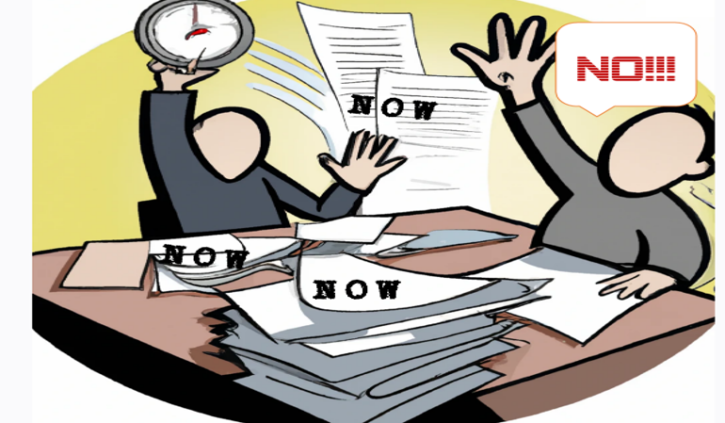In the world of employment, it is not uncommon to encounter a boss who occasionally makes unreasonable requests. Employees often feel perplexed, frustrated, and wonder how to navigate such situations. Let’s delve into:

- what unreasonable requests in the workplace are
- how they can affect you
- some strategies to handle them
Unreasonable requests are demands from your boss that seem beyond the scope of your job description or are simply impractical. They might involve tight deadlines, excessive workloads, or tasks that don’t align with your expertise. Work-life balance and even overall job satisfaction can be impacted and disrupted.
If you are faced with an unreasonable request, your initial response should be to speak up. Approach your boss respectfully. Voice your concerns. Outline your existing duties and deadlines clearly. Explain how the request might affect your ability to meet them. Offer alternative solutions or suggest ranking tasks to manage the situation better.
Saying “no” to your boss can be a delicate situation, so you need to think carefully about the end result. While it’s essential to be respectful and professional, there may be some anxiety involved. You can navigate these conversations effectively by following these tips.
- Understand Your Capacity: Before saying no to your boss’s request, take time to assess your workload and current commitments. Make sure you have a clear understanding of your priorities and the impact of taking on additional tasks. This will put you on solid ground for discussing your limitations.
- Offer Alternatives: Instead of simply saying “no,” propose alternative solutions that can address the underlying need or objective. Suggest alternative resources or coworkers who may be better suited to handle the task. By providing options, you show your willingness to support your boss while managing your workload effectively.
- Provide a Clear Explanation: When discussing your limitations with your boss, be open and honest about your workload and time constraints. Clearly state your current commitments, and explain how taking on the additional task may impact your ability to deliver quality work. Your boss will appreciate your transparency and understanding of the bigger picture.
- Express Your Willingness to Help: Although you may be saying “no” to a specific request, emphasize your willingness to support your boss in other ways. Offer help with prioritization. Suggest alternative ways you can add to the team’s success. This shows that you value its needs and are committed to being a valuable team member.
- Seek Clarity & Confirm Priorities: If you find it hard to decline a request from your boss directly, seek clarity on priorities. Discuss your current workload. Ask for guidance on which tasks should take precedence. This conversation can help you align your efforts with your boss’s expectations while managing your workload effectively.
After you have communicated your limitations, talk about priorities with your boss. Remember that taking breaks and practicing self-care are essential to maintain your productivity and well-being.
Finally, remember, saying “no” to your boss should be approached with respect and professionalism. It’s key to talk about your limitations while still showing your commitment to the team’s success. So, offer alternatives and engage in open and honest dialogue. By doing this, you can get through these situations in a way that maintains a positive working relationship and supports your time management efforts.
Related topic: 4 Steps to Work Better with Your Coworkers (No Matter How Unreasonable They Might Seem)
Adrienne Bitoy Jackson, BSBA, MS. Ed, PMP, President & CEO of Heuristics Marketing Consultants, LLC is an inventive, effective, resourceful thought leader, writer, coach, mentor, project manager, change agent, and former public administrator with 25+ years’ experience with government entities, professional associations, nonprofit faith & community-based organizations, and educational institutions. Designated a well-qualified Senior Public Service Administrator/Executive I, and high-level Social Service Program Planner by the State of Illinois; she is a professional development advocate skilled in capacity building, marketing communications, and organizational development and a winner of the City of Chicago’s Kathy Osterman Award for Outstanding Professional Excellence.





Leave a Reply
You must be logged in to post a comment.